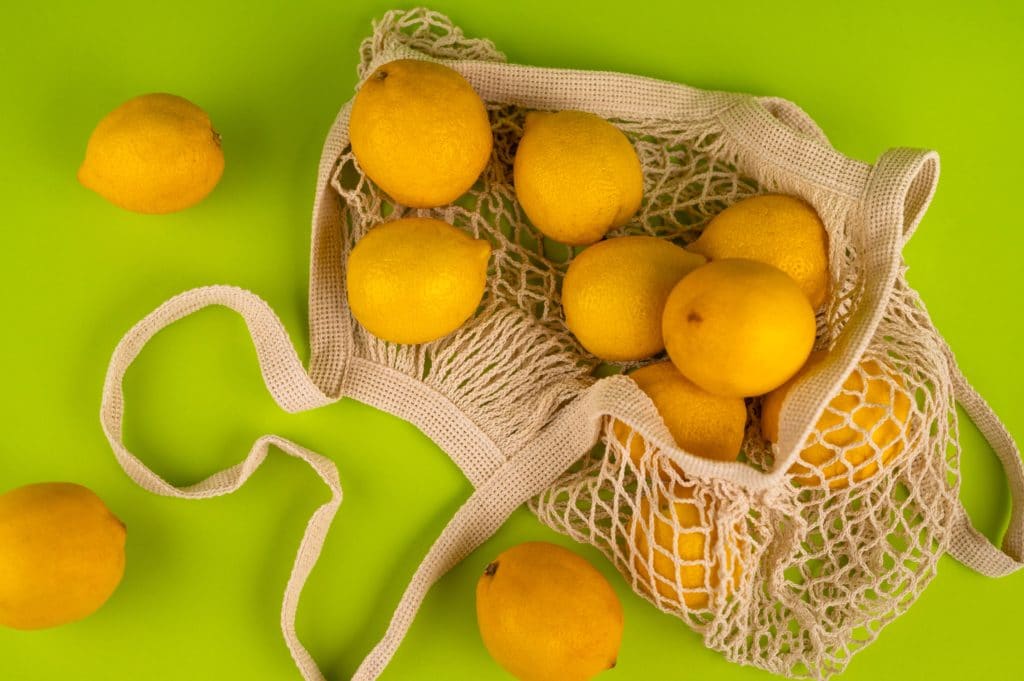Plastic pollution is one of the greatest problems our world is currently battling against. Despite greater global awareness on the importance of recycling and its practices, more than 90% of global plastic waste still ends up in landfills and polluting our oceans with microplastics. Swapping out your plastics in your everyday life doesn’t have to be difficult and can go a long way to reduce your carbon footprint. It’s time to ditch single-use plastic and embrace these eco-friendly alternatives to plastics instead.
—
1. Organic Cotton Bags to Replace Plastic Shopping Bags
As less than 5% of the 1 trillion single-use plastic bags discarded each year gets recycled, consider switching to organic cotton bags, which are free of chemical residues and decompose in landfill within 5 months. Remember to put a reusable bag in your handbag or backpack and car to make sure that you don’t need to buy a new reusable bag every time you go out!
2. Bamboo Toothbrushes to Replace Plastic Toothbrushes
Globally, about 23 billion plastic toothbrushes are thrown away each year, each one taking up to 500 years to fully decompose. Bamboo is a natural material, is fast-growing and 100% biodegradable, decomposing in landfill within 6 months. Just be sure to pluck out the nylon bristles before you get rid of your toothbrush so that they too can be recycled!
3. Steel Containers and Drinking Straws to Replace Plastic Containers
Consider switching out your plastic lunch container and straws for steel ones; steel can be infinitely recycled and is 100% recyclable without losing its quality.
You might also like: 15 ways to Reduce Your Plastic Waste
4. Natural Fibres to Replace Synthetic Fibres
Natural fibres won’t shed microplastics when washed or used unlike synthetic fibres like polyester or acrylic that are more problematic for the environment and can leach potentially toxic chemicals into the environment. Natural fibres include organic cotton, hemp and bamboo.
5. Shampoo Bars to Replace Conventional Shampoo
Shampoo bars cut out the need for plastic bottles. Even better, many of them are free of palm oil, an ingredient linked to deforestation, like those of Ethique and Meow Meow Tweet. Additionally, they are more effective than most conventional shampoos because they aren’t pumped with water like conventional ones are, diluting the product; on average, a shampoo bar will outlast two to three bottles of liquid shampoo.
We hope that this list of plastic alternatives will inspire you to swap some key items in your life with plastic-free options instead. As you eliminate plastic from your life, you’re not only cutting your own carbon footprint, you’re modelling more sustainable living for those around you. Also, as demand for more sustainable business practices grows, companies will respond and use of harmful plastics can be stemmed.
6. Beeswax Food Wrap to Replace Plastic Food Wrapping
While plastic wrap can be an effective and efficient tool to save and reduce food waste, it’s inevitably a single-use plastic that eventually makes its way to landfills. In 2019 alone, it was recorded that more than five million Americans had gone through more than 10 million boxes of plastic wrap. Try making a swap to reusable beeswax food paper. They are made out of materials including cotton, sustainably harvested beeswax and tree resin, which can be washed, compostable, and most importantly, reusable.
7. Reusable Silicone Food and Steamer Bags to Replace Plastic Storage Bags
Food lovers and home cooks would often require plastic ziplock bags for certain dishes and marinating. Instead of disposing of them every time you’re done, opt for reusable silicone food bags which you can safely store, freeze, microwave and even put in boiling water for sous vide.
You might also like: 10 Scientific Solutions to Plastic Pollution
Featured image by: Pexels

















